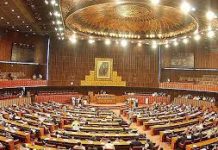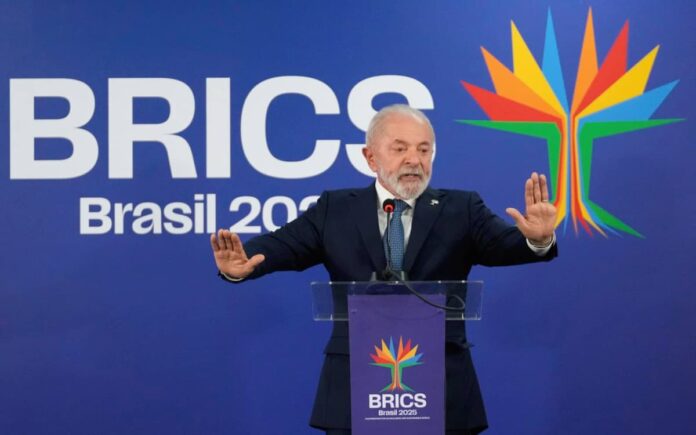President Donald Trump’s warning of new tariffs on countries aligning with BRICS drew strong reactions from leaders at the group’s summit in Rio de Janeiro on Monday.
Brazilian President Luiz Inacio Lula da Silva said the world no longer needs an emperor and emphasized that BRICS aims to organize global economic relations in a different way.
Trump’s comments came just as the U.S. prepares to finalize multiple trade deals ahead of a July 9 deadline for new retaliatory tariffs. He had posted on Sunday that any country supporting the “anti-American policies” of BRICS would face an additional 10% tariff.
In February, he had also threatened 100% tariffs if the group moved to weaken the U.S. dollar in global trade.
Lula repeated his position that international trade needs alternatives to the dollar, but said any shift must be gradual and coordinated through central banks. He confirmed that Brazil has backed off efforts to launch a common BRICS currency, an idea proposed by some members last year.
Other BRICS leaders responded with more measured comments. South African President Cyril Ramaphosa said the group does not seek competition with other powers and expects to reach a trade deal with the U.S. China’s foreign ministry said BRICS supports cooperation and is not directed against any country. Russia said its involvement with the group reflects a shared world view and is not aimed at third countries.
India did not issue a response to Trump’s comments. New member Indonesia sent its senior economic minister to the U.S. on Monday for talks related to tariffs. Malaysia, attending the summit as a partner country, said its economic policy remains independent and not driven by ideology.
Malaysia had previously been hit with a 24% U.S. tariff, which was later suspended.
The BRICS summit also produced a joint statement condemning the bombing of member Iran and warning that rising tariffs pose a risk to global trade. The bloc has continued to promote itself as a platform for multilateral diplomacy in contrast to forums like the G7 and G20, which have struggled with internal divisions.
The BRICS group originally included Brazil, Russia, India, and China, and expanded to add South Africa in 2010. It added Egypt, Ethiopia, Indonesia, Iran, and the United Arab Emirates last year.
Saudi Arabia has accepted an invitation to join and is attending as a partner. Over 30 other countries have shown interest in joining the bloc as either members or partners.























